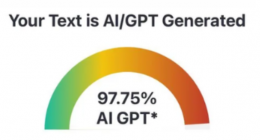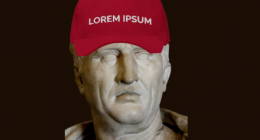WASHINGTON, DC—Last Monday, the Supreme Court upended traditional legal theory when it injected new mathematical requirements into the legal system. The case, which was initiated by Math professors from around the country, challenged traditional legal norms and court precedents.
Stephen J. Fries, Professor of Mathematics at Iowa State University, explained the complaint.
“Courts have always required proof to prove a claim, but we wanted to change the game.
We wanted courts to require not just proof, but rigorous proof.”
Justice Kennedy delivered the opinion of the court. “This court has long recognized the need for fair treatment, but until now, our analysis has never ventured much beyond a judgment of ‘equal’ or ‘unequal.’ As any mathematician can tell you, that is a very narrow view of the world. From now on, cases will be judged not just on their compliance with ‘equality,’ but also by their accordance with the most widely accepted mathematical principles.”
Kennedy continued, “Take, for example, the civil rights movement. The Constitution states that African Americans count only as 3/5 of a person.
Traditional legal theory tells us that the 15th Amendment solves this inequality. But in this case ‘equal’ is not good enough.
Equality now does not make up for inequality in the past for the simple reason that (3/5)*(1)<(1)*(1). The only way to achieve actual equality is to use the additive inverse. Or, if you think reciprocal treatment is permissible, the multiplicative inverse: (3/5)*(5/3)=(1)*(1)=1.” In response to this revolutionary decision, legal and mathematical scholars throughout the country are speculating about the impact this ruling will have on the law. One analyst, Michael J. Butler, offered his opinion. “This decision will impact almost every area of the law,” said Butler. “Strict scrutiny, for example, will no longer require a compelling state interest and a narrowly tailored policy, but will instead require a significant compelling state interest at level α=0.05 accompanied by a policy narrowly tailored with a limit approaching zero.” Though many legal scholars and mathematicians are overjoyed to hear the court’s decision, support for the decision is by no means unanimous. The most scathing criticism of the decision comes from Justice Anonin Scalia, who wrote a dissenting opinion in the case. “Though Kennedy’s desire to improve legal standards is laudable, his view of the Constitution is fundamentally flawed,” wrote Scalia. “The framers of the Constitution would never have put our fundamental rights in the hands of mathematicians. One day, they’re talking about reciprocal rights and rigorous proof, but the next, they’re in some non-euclidean constitution, complete with imaginary rights and liberal radicals. If we want to preserve the constitution, we need to remember that our founding fathers didn’t give us the numerator rights, they gave us gave us enumerated rights, rights that can’t be fractioned away by the existence of irrational numbers and future rogue mathematicians.”




